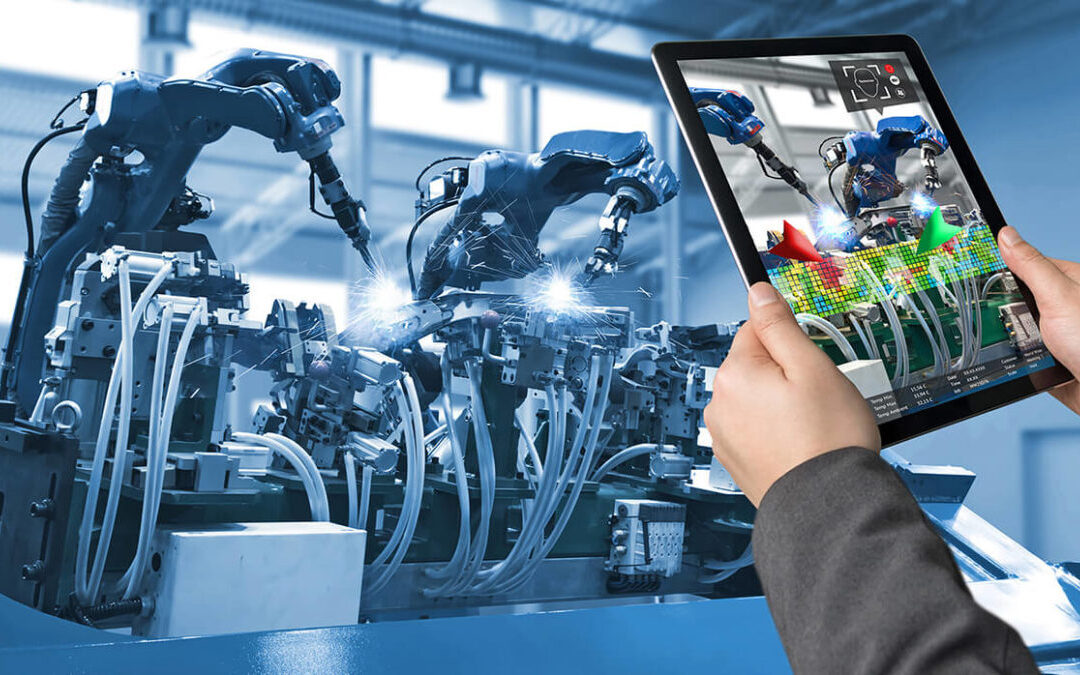In today’s fast-paced world, the integration of AI and predictive diagnostics is revolutionizing how we interact with our living spaces. This transformative technology not only promises to enhance our daily lives but also offers a plethora of benefits for homeowners and industry leaders alike. From energy efficiency to improved safety, the applications of AI in smart homes are vast and varied.
As we delve into the realm of AI and predictive diagnostics for homes, we uncover the potential of these technologies to predict and solve problems before they even arise. This proactive approach is reshaping the future of home management and maintenance, making our homes smarter, safer, and more efficient.

The Role of AI in Smart Homes
AI plays a crucial role in the smart home ecosystem by analyzing data and providing actionable insights for homeowners. Through machine learning algorithms and data analytics, AI systems can detect patterns and predict potential issues, enabling timely interventions.
Predictive Diagnostics: A Game Changer
Predictive diagnostics is a groundbreaking application of AI that analyzes data from various home systems to foresee potential failures or maintenance needs. By doing so, it helps in reducing unexpected breakdowns and optimizing repair schedules, leading to cost savings and increased longevity of home appliances. For more on how predictive systems can transform home maintenance, check out this Predictive Control Systems.
Benefits of AI in Home Maintenance
The integration of AI in home maintenance offers several advantages, including:
- Cost Efficiency: By predicting when appliances need maintenance, homeowners can avoid costly repairs and extend the lifespan of their systems.
- Energy Savings: AI systems optimize energy consumption, leading to reduced utility bills and a smaller carbon footprint.
- Safety Enhancements: With predictive diagnostics, potential hazards can be identified and mitigated before they pose a risk to occupants.
Explore how Maintenance Prediction can enhance safety and efficiency in smart homes.
AI-Driven Energy Efficiency
AI systems analyze energy usage patterns and provide recommendations for optimizing energy consumption. This not only helps in reducing energy bills but also contributes to environmental sustainability. Learn more about the advantages of predictive maintenance.
Challenges and Solutions
As with any emerging technology, the adoption of AI and predictive diagnostics in homes faces several challenges, including data privacy concerns, integration complexities, and the need for continuous updates and maintenance. However, ongoing advancements in AI promise to address these issues, making smart homes more user-friendly and accessible.
Overcoming Data Privacy Concerns
Ensuring data privacy is paramount in the implementation of AI systems. By adopting robust security measures and transparent data policies, companies can build trust with consumers and drive the adoption of smart home technologies.
The Future of Smart Homes
The future of smart homes is bright, with AI and predictive diagnostics leading the charge in innovation. As these technologies continue to evolve, we can expect even more sophisticated solutions that enhance our quality of life and redefine the concept of home automation.
Continuous Advancements in AI
With continuous research and development in AI, the capabilities of smart home systems are set to expand, offering new functionalities and greater convenience for homeowners.
To stay updated on the latest developments in smart home technology, visit this Automated Maintenance Alerts page.
Conclusion
In conclusion, AI and predictive diagnostics for homes are paving the way for a new era of smart living. By embracing these technologies, homeowners can enjoy enhanced safety, efficiency, and convenience, making their homes not just living spaces but intelligent partners in their daily lives.

FAQ Section
What is predictive diagnostics in smart homes?
Predictive diagnostics in smart homes involves using AI to analyze data from home systems to predict and prevent potential issues before they occur, enhancing efficiency and reducing costs.
How does AI improve energy efficiency in homes?
AI improves energy efficiency by analyzing usage patterns and optimizing energy consumption, resulting in lower utility bills and a reduced environmental impact.
Are there any privacy concerns with AI in smart homes?
While there are privacy concerns with AI in smart homes, companies are implementing robust security measures and transparent data policies to protect consumer information.
This article contains affiliate links. We may earn a commission at no extra cost to you.

